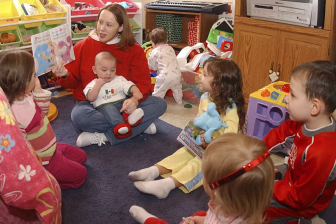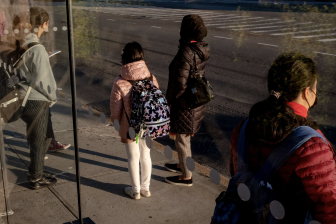
School meals can be ‘the catalysts for change’
Providing children with at least one healthy school meal a day is the key if European governments want to properly tackle rising obesity rates, prevent chronic illnesses and reduce social inequalities.
That’s the view of SchoolFood4Change, a European Union-funded project highlighting the importance of school meals far beyond just the food itself, but also in a social and economic context through education and training.
SchoolFood4Change is a four-year project, and organisers say that they want to ‘redefine what it means to eat healthily’. Schools, it adds, are ‘catalysts for systemic and multi-actor change, including but not limited to school curricula’.
This will involve training cooks, caterers and public procurers at city level, with the aim of creating what they call a ‘true ripple effect’, benefiting up to two million citizens across the EU.
“Change is urgently needed,” say organisers. “No European country is on track to meet its obesity reduction goals for 2025. In fact, obesity rates among young people continue to rise in many European countries. Children today are forming lifelong eating habits as we speak but we must take advantage of the window of opportunity that is given during childhood.
School food programmes create the incredible potential to expose students to nutritious, regional and delicious meals from early on, enabling them to become change agents and to carry the message into their homes and families
Appearing at the youth-led World Food Forum in Rome, a delegation from SchoolFood4Change said that child nutrition should be prioritised by ensuring access to affordable, nutritious diets, but also by protecting children from nutrient-poor, ultra-processed foods’.
“The provision of nutritious and sustainable school meals carries incredible potential to support children’s health and wellbeing, promote social justice, fight against poverty, and protect the climate and biodiversity. Throughout the world, school meals offer a key opportunity to tackle child hunger and malnutrition, which often results from climate change,” it adds.
“Not only will school meals address childhood hunger, but when paired with food education, they can empower children to become agents of change and carry this message forward.”
The SchoolFood4Change Youth Delegation is made up of Angèle Tasse (ICLEI Europe), Francesca D’Addario (ICLEI Europe), Ilsa Philipps (IFOAM Organics Europe), Marzia Béthaz (Eating City), Paola Hernández (Mensa Cívica), Philip Linander (SF4C Food Ambassador / Eating City), Catarina Vasconcelos (SF4C Food Ambassador / Eating City), Abdul Moiz (Eating City Ambassador), Irene Vidal (University of Alcalá), Lola Berna Gascón (Young Fair Trade Advocate).
In the USA meanwhile, the US Department of Agriculture has teamed up with the Urban School Food Alliance to provide training and other resources to school nutrition programmes, to help with what they call ‘procurement challenges’.
Comprising the 17 of the largest school districts in the country, the USFA is a nonprofit group that aims to help districts provide high-quality student meals while keeping costs down.
Through the partnership, the USFA will develop new educational tools to teach schools best practices for purchasing food for school meal programs. It will also create an interactive bid template to help standardise procurement processes in school nutrition.




